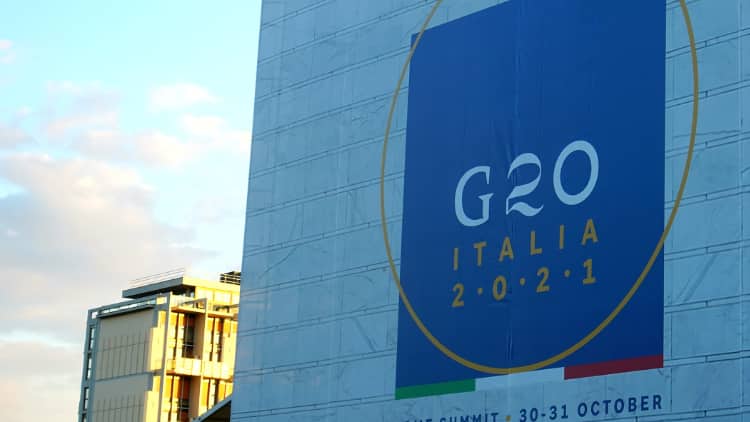The Diplomat
At the start of a crucial week for global governance, tourism’s relevance will be part of the discussions at the UN Climate Change Conference (COP26), just as it was in Rome when G20 leaders met to coordinate plans for sustainable and inclusive recovery.
In Italy, UNWTO succeeded in placing tourism’s importance in the spotlight. The leaders of some of the world’s biggest economies endorsed the G20 Rome Guidelines for the Future of Tourism, committing themselves to taking action to fulfil its objectives, particularly to accelerate the return of safe and seamless travel and the digital transformation of the sector.
The G20 Rome Leaders’ Declaration states: “We will continue to support a rapid, resilient, inclusive and sustainable recovery of the tourism sector”, with a special emphasis on “safe mobility and seamless travel and sustainability and digitalization.” Concluding the G20 leaders called on their Ministers of Tourism to build on exiting collaboration with UNWTO and other international organizations.
From Rome to London
“G20 represent 70% of world tourism and are in a natural position to lead tourism’s recovery”, UNWTO Secretary-General said. Mr Pololikashvili stressed the need for “coordination, strong actions, political and financial support for tourism’s transition to greater inclusivity and sustainability, which we will be addressing tomorrow at our Minsters’ Summit during World Travel Market in London.”
‘Investing in Tourism’s Sustainable Future’ is the theme for this year’s Ministers’ Summit on 2 November, organized by UNWTO, the World Travel and Tourism Council (WTTC) and WTM, gathering over 20 tourism ministers leading private sector operators. In London, UNWTO will make clear that tourism will only be able to recover and meet its climate action commitments if it is given the proper political and financial backing.
With the importance of funding and investments made clear, and with the G20 Tourism Ministers also having welcomed the Recommendations for the Transition to a Green Travel and Tourism Economy, developed by UNWTO and the G20 Tourism Working Group, the focus will then shift to Glasgow later this week. UNWTO will play an active role in climate action discussions and will launch the Glasgow Declaration, a commitment to accelerating the sector’s shift to net-zero. The Declaration already counts on more than 150 signatories from every part of the sector and of every size.
Tourism’s voice at COP26
Tourism is now an established part of the UN agenda, recognized for its ability to contribute to all the Sustainable Development Goals. At the United Nations Climate Change Conference (COP26) in Glasgow, UNWTO will be bridging the gap between governments and the private sector to ensure tourism lives up to its climate action responsibilities.
Leading the main tourism related event at COP26, UNWTO has gathered hundreds of private sector operators from across the world to commit to the Glasgow Declaration. Spearheaded by UNWTO, this Declaration is aimed at aligning the diverse tourism sector behind a single, overarching goal of halving emissions by 2030 and achieving net zero by 2050 at the latest. The Declaration is to be implemented in collaboration with the Travel Foundation and within the framework of the One Planet Sustainable Tourism Programme.







